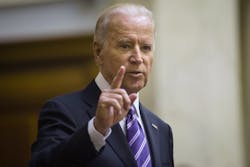$2.8 Billion Awarded to Projects to Boost Electric Vehicle Battery Manufacturing
The Biden Administration announced on Wednesday that it will award $2.8 billion in grants for projects to expand the manufacturing of batteries for electric vehicles (EVs) and domestic mineral production in the United States.
Funded through the bipartisan Infrastructure Investment and Jobs Act (IIJA), the grants seek to enable the manufacturing and processing companies in approximately 12 states to extract and process more lithium, graphite, nickel and other battery materials.
The announcement comes as a part of the administrations push to transition away from gas-powered cars to electric vehicles. The transportation sector represents about one-third of planet-warming greenhouse gas emissions each year.
“Producing advanced batteries and components here at home will accelerate the transition away from fossil fuels to meet the strong demand for electric vehicles, creating more good-paying jobs across the country,” Energy Secretary Jennifer Granholm said in a statement.
The projects will support developing enough lithium to supply about 2 million EVs per year, developing enough graphite to supply about 1.2 million EVs per year and producing enough nickel to supply about 400,000 EVs per year, according to the Department of Energy.
According to the Department of Energy, the projects will also install the country’s first large-scale commercial lithium electrolyte salt production facility in the U.S and develop an electrode binder facility that will supply 45% of the anticipated domestic demand for binders for EV batteries in 2030.
The White House has set a goal for EVs to comprise half of all new vehicle sales by 2030 and has pledged to replace its federal fleet of 600,000 cars and trucks with electric power by 2035. The administration has also rolled out a plan to allocate $5 billion to states to fund EV chargers on national highways.
------------------------------------
Source: CNBC
